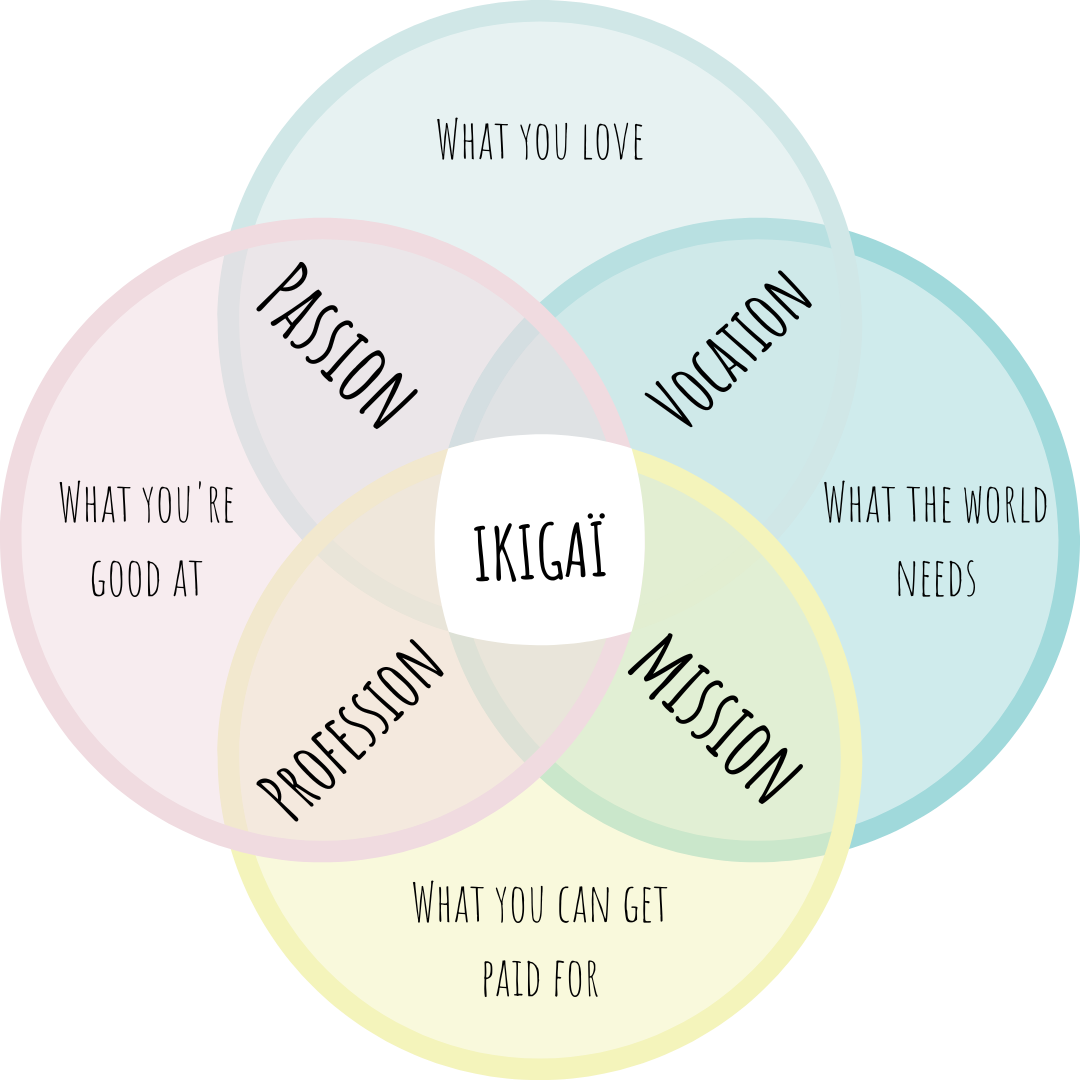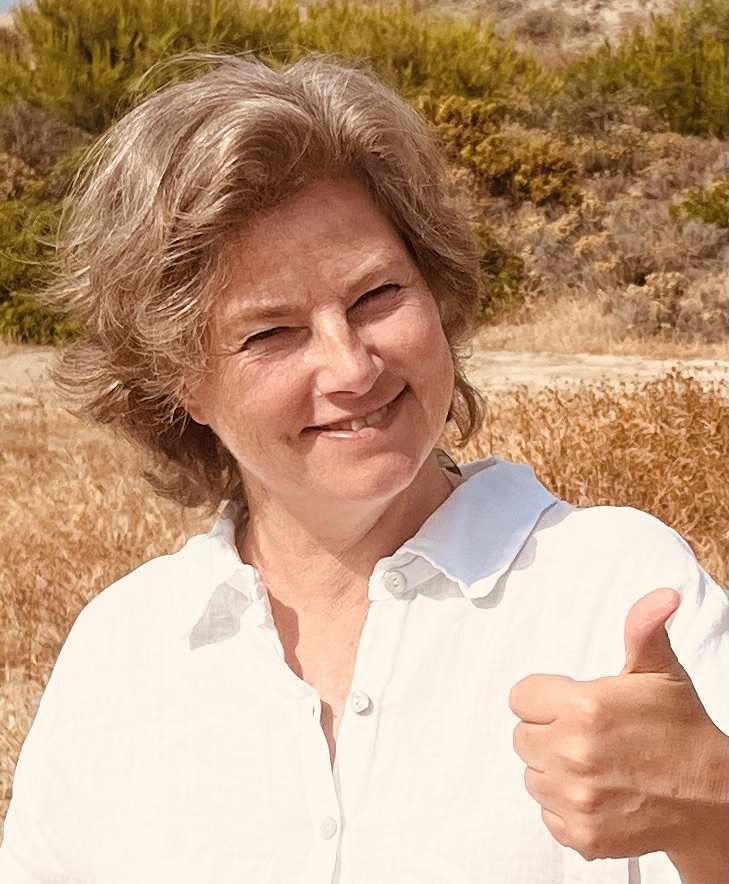
Returning to work
Once the burn-out has been dealt with, it’s time to prepare and think about the return to work. This is a key stage in the healing process
Ever heard of Ikigaï?
The Japanese use this tool to explore the question of full balance

returning to work after burnout
It's time to ask yourself the right questions
What are you passionate about? What do you enjoy doing?
It’s an activity where you don’t see the time go by when you’re doing it. Looking at your watch doesn’t occur to you for a moment, because you feel so good when you’re doing it… Here it’s important to focus on your personal motivation, something that irresistibly attracts you, in GO TO mode rather than AWAY FROM!
What I often see, especially with young women, are people who have given so much (for work, for children, for family…) that they don’t even know what they want for themselves. So it’s really important to set a course, because “there’s no fair wind for him who doesn’t know where he’s going”, as Seneca said.
What are you doing well?
Ask those close to you, those who appreciate you, and even those who perhaps appreciate you a little less, to name five strong points, five qualities they appreciate in you. In my coaching work, this is a point to which I attach a great deal of importance. Often, life has dealt you such a heavy hand that you don’t even know what your qualities are anymore, sometimes even thinking you have none at all.
In that case, I say, lift up your hearts! We all have qualities, qualities that make us unique. To be in a perfect position to help you in this area, I’ve trained in skills assessment.
In that case, I say, lift up your hearts! We all have qualities, qualities that make us unique. To be in a perfect position to help you in this area, I’ve trained in skills assessment.
What does the world need?
I leave you to dream about what could make the world a better place, and how you could contribute to it.
It’s time to allow ourselves to think outside the box. As Dr. Plisnier, a person who has meant a great deal to me, said to me a long time ago, “The world cannot go on as it is”. So it’s up to us to find new ways of contributing to the world…
It’s time to allow ourselves to think outside the box. As Dr. Plisnier, a person who has meant a great deal to me, said to me a long time ago, “The world cannot go on as it is”. So it’s up to us to find new ways of contributing to the world…
What is the world prepared to pay for?
At this stage of the process, we need to ask ourselves financial, economic and marketing questions. Sometimes this goes beyond the strict domain of my coaching. In this case, I’d be delighted to introduce you to some of the structures that can help you deal with these issues.

In my experience, fear is a major factor when considering a career change.
So give me a call and let's talk!

returning to work after burnout
- A warm, straightforward welcome and a sympathetic ear: This is essential if you’re to be able to put your issues on the table in complete confidence, and to give you the desire to move forward.
- Ethical support from a professional: When I became a coach, I was driven by the desire to do quality work. To achieve this, I have followed renowned training courses that have led to certification, I continue to train regularly and I am supervised.
- Sometimes confrontation: Coaching sometimes means confrontation, to help the coachee become aware of certain beliefs that are blocking him or her, for example. As far as I’m concerned, when I do this, it’s always with the strictest respect for the person concerned. I confront the problem, not the person.
- And last but not least, a roadmap to your goals: Setting a goal is the very essence of coaching. It’s so simple and so effective: define your goals and then see how you get there! I’m convinced of the effectiveness of this type of approach and, as such, I myself get coached on issues that I haven’t resolved!
Testimonials
Returning to work
I sought Sophie's coaching in the context of a profound unbalance between my professional and personal lives, which had led to a professional burn-out.
With Sophie's help, and by working on the basis of my needs and values, I was able to re-establish a healthy balance between my personal and professional life.
I was also able to prepare for a serene return to a new professional adventure.
Throughout our sessions, Sophie was a very kind and attentive listener. Thank you again for all your help.

